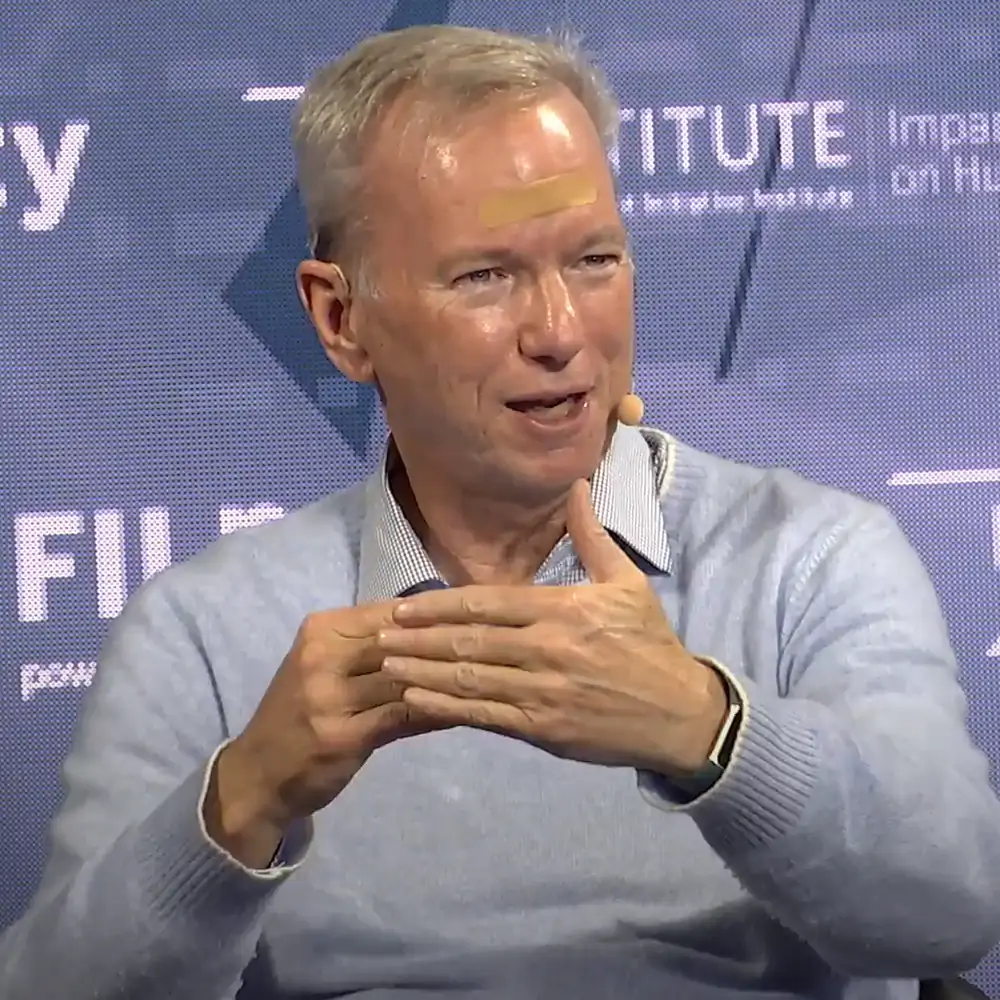Artificial Intelligence, or AI, has held various roles both in the past and in science fiction. Historically, the technology has been depicted as everything from benevolent assistants to malevolent overlords.
In the past, AI has been seen as a tool to enhance human capabilities, aiding in tasks such as data analysis, automation, and problem-solving.
And because of how people 'dream' of the existence of "smart machines," AI has been part of science fiction as well, depicted as both the helper of humanity, as well as the enemy of mankind.
AI rarely made ripples outside its own realms, nor wowed people beyond technologists and fans of science fiction.
But this time, following the hype of generative AI, thanks to ChatGPT by OpenAI that sent tech companies into frenzy and created an arms race, the world now realizes how AI is so capable and helpful.
And also, the world is also realizing that some of the threats are real.

Eric Schmidt, former CEO of Google, spoke to former U.S. Treasury Secretary, Larry Summers, at the FII Institute, and said that:
Looking ahead, Schmidt suggested AI can increase everyone's productivity by automating the tasks that would have previously completed themselves.
So here, seeing the explosive growth of AI development and hype, Schmidt is certain that AI is going to continue transforming the world.
This is surely an advantage because with AI, humanity should be able to advance faster than ever before.
But the idea here, following the hype of generative AI and the trends companies and developers are focusing on, future AI can help users complete works using simple text prompts.
"You’ll have an idea, and you’ll say I want a ‘this’ and the system will show you the recipe or organize the events… The systems will be smart enough to be able to communicate, send emails, make phone calls and so forth."
And then comes the issues.
"Let’s think about lawyers. The paralegal brief, LLMs can do that today. Programmers: there are sometimes programming teams where they have a very smart set of programmers and then people who sort of fill in and do testing – the latter part will be automated."
"All of the things that are second order effects, those jobs are affected very dramatically and very quickly in my opinion."
What he means here is that, as AI gets smarter and products powered by the technology becomes more capable and more helpful, AI will also take away people's jobs.
While AI already has the capabilities to replace certain jobs, including those done by paralegals and computer programmers, Schmidt said that the technology will soon be able to replace academics and executives too.
Schmidt argued that AI technologies can soon be able to carry out an array of complex tasks that will eventually enable highly skilled jobs to be automated.
In other words, smarter AIs are threatening even the highest paid workers.
Science fiction has depicted AIs in various forms and roles, and that the technology has been a subject of fascination and speculation, representing humanity's aspirations, fears, and ethical dilemmas surrounding the creation of intelligent machines.
But they were never a big threat in real life, before they become so real and so close to reality, that people finally see how smart machines can replace humans.